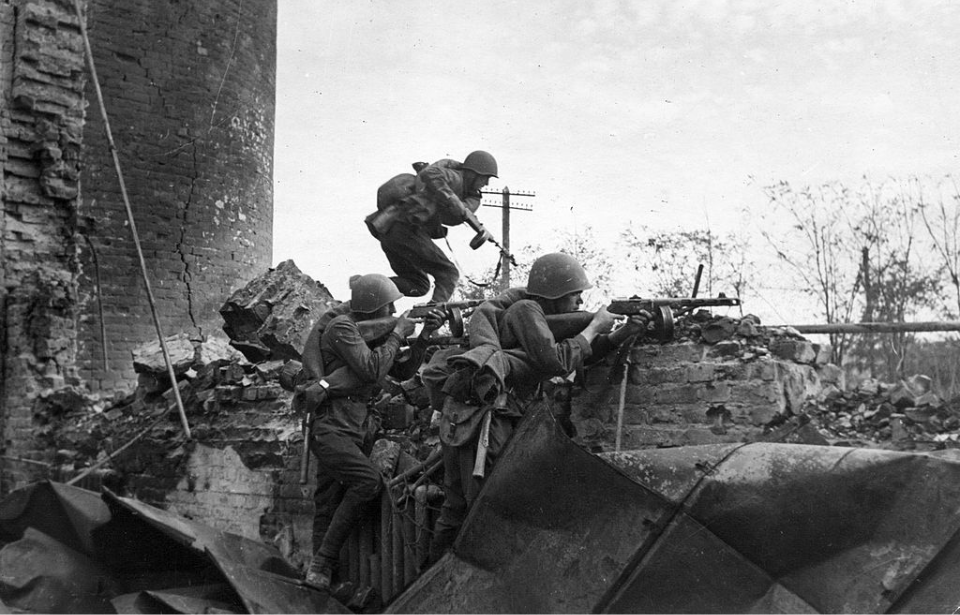The stories about children of war are often tragic; the Second World War, for example, claimed the lives of millions. Some were sent to concentration camps, where they lost their lives, while others were forced to partake in the hostilities. Many simply fell victim to armies fighting in their villages. One child, six-year-old Sergei Aleshkov, was the youngest participant of the Battle of Stalingrad and one of the youngest soldiers to serve in the conflict.
German soldiers ravaged Sergei Aleshkov’s village
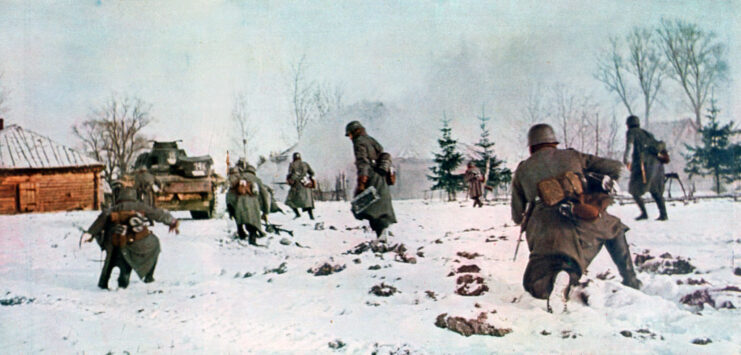
Documents about Seryozha “Sergei” Aleshkov’s birth weren’t preserved, meaning we can only estimate when and where he was born. His birth occurred in either 1934 or ’36, in the forest village of Gryn’, in the Kaluga region of the Soviet Union.
Following the outbreak of the Second World War – dubbed the “Great Patriotic War” in the USSR – the village became a base for partisans. In the summer of 1942, German troops unexpectedly arrived in Gryn’, killing the fighters. For their complicity, the villagers, too, were executed.
Sergei’s 10-year-old brother, Petya, was hanged, while his mother was shot while trying to protect her son. Thanks to a caring neighbor, the young boy, at the time either six or eight, was able to escape through a window, after which he ran into the forest. He wandered until that August, when Soviet scouts found him.
Discovered wandering the forest
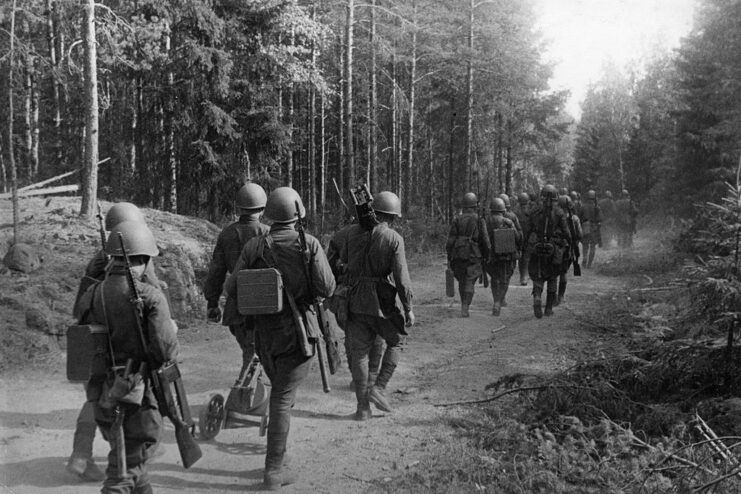
Sergei Aleshkov was physically and psychologically exhausted by this point, and his body was covered in insect bites. He couldn’t answer how long he’d spent in the woods, and many of the Red Army scouts were shocked by his state. They covered the child in a horse blanket and brought him to the staff dugout.
Maj. Mikhail Vorobyov later recalled, “In the dugout, everyone seemed to be numb. I wanted to rush in there, to the line of trenches, in order grab the throat of the first fascist that came across.”
After questioning Sergei, the soldiers managed to learn his name. However, when they asked about his mother, he burst into tears and couldn’t be reassured for a long time after. He was left as a pupil with the 142nd Guards Infantry Regiment, 47th Guards Rifle Division, after which he received medical assistance and was sewn a suitable military uniform.
Sergei Aleshkov was adopted by Maj. Mikhail Vorobyov
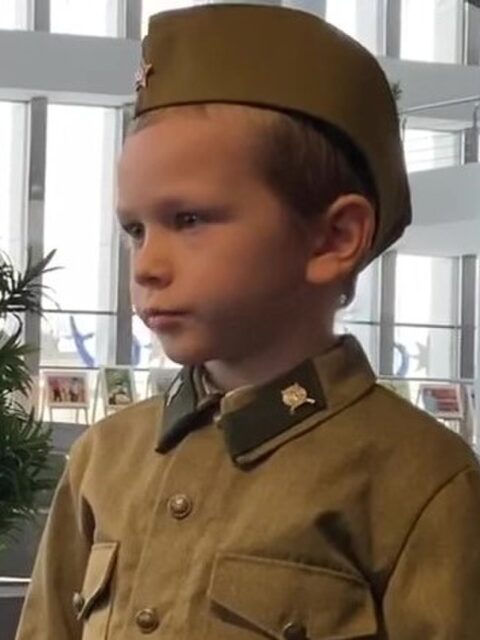
Mikhail Vorobyov, who didn’t have a family of his own, cared for Sergei Aleshkov and later adopted the young boy. He didn’t want to send him to an orphanage, deciding nothing would happen to him if he remained with the 142nd Guards Infantry Regiment.
In a conversation with his adoptive father, Sergei said he’d like to see a regimental medical officer named Nina Bedova as his new mother. Vorobyov thought about this and soon married Bedova. According to the main retelling of Sergei’s story, the trio officially became a family after the Battle of Stalingrad.
Aiding his comrades during battle
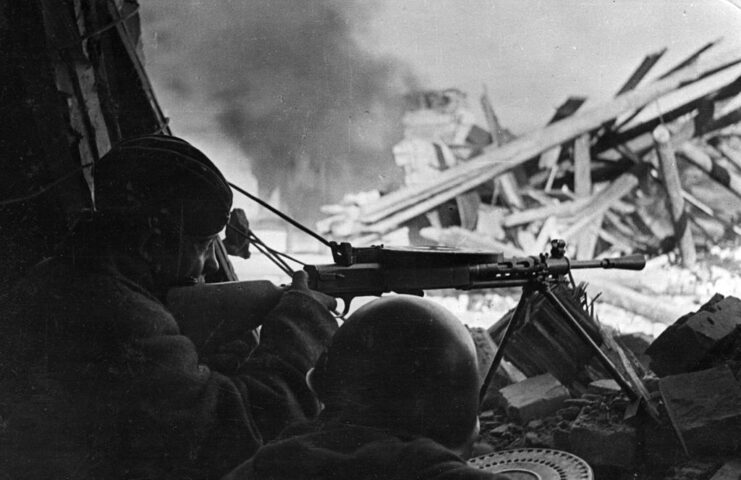
Sergei Aleshkov considered himself an assistant to Mikhail Vorobyov. He went to headquarters every morning and reported on his readiness to carry out new assignments. However, he didn’t partake in combat operations. Instead, he carried messages and delivered newspapers and letters to Red Army divisions. During battle, he offered his comrades water, cartridges and grenades.
Once, while delivering newspapers, Sergei noticed suspicious individuals in a haystack and reported them. It turned out that they were German artillery spotters who’d been hiding in the haystack with a walkie-talkie. They were quickly neutralized, and Sergei received gratitude from the Red Army command.
Later, during German shelling, the dugout for the 142nd Guards Infantry Regiment’s commander was destroyed. Nobody, except Sergei, saw Vorobyov under the rubble. Frightened, the child unsuccessfully tried to move the debris, before running for help. It was because of his actions that his father was saved, and he received the For Combat Merit medal.
Battle of Stalingrad
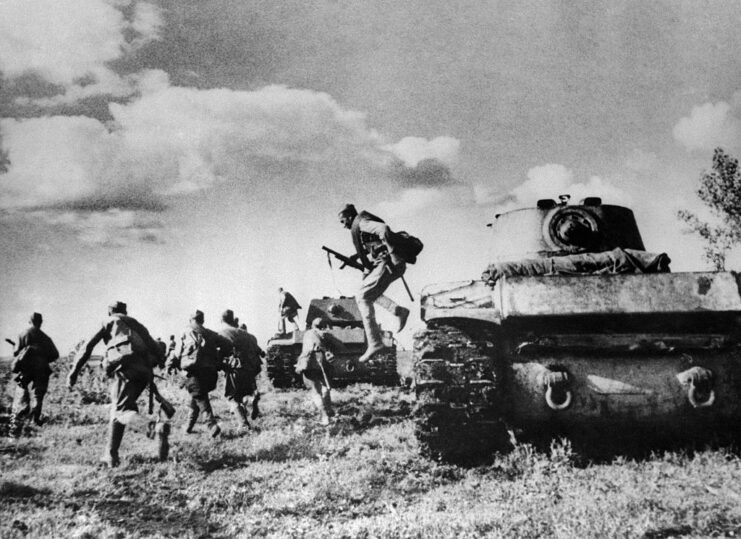
Sergei Aleshkov’s time with the 142nd Guards Infantry Regiment didn’t get any easier. He faced many near-death experiences, including a near-drowning while crossing the Donets and an encounter with a landmine. He was once given a junior lieutenant’s uniform as a joke, which almost got him shot by Luftwaffe pilots flying overhead.
Soon, the 142nd took part in the Battle of Stalingrad. On November 18, 1942, Sergei, along with Red Army soldiers from one of the companies, fell under mortar fire. He was wounded by shrapnel in the leg and sent to hospital. After receiving treatment, he returned to the frontlines.
The entire region was soon liberated and the survivors from Sergei’s home village of Gryn’ explained to officials how the young boy had become an orphan. In addition to losing his mother and brother, his father had perished prior to the conflict. His older brothers, Ivan and Andrei, had gone to fight.
Sergei Aleshkov’s life after World War II
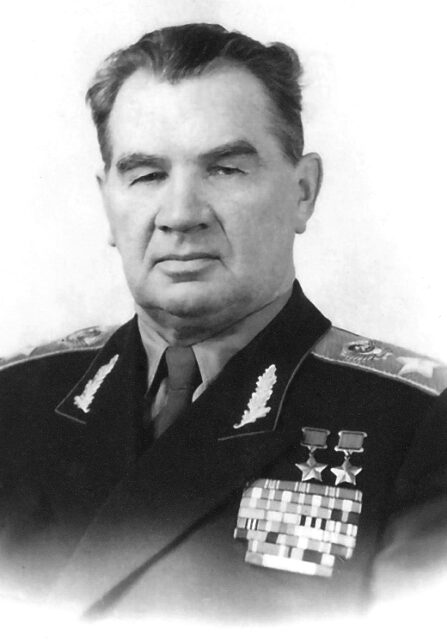
Sergei Aleshkov’s adoptive mother, Nina Bedova, became pregnant and left the frontlines. A few months after giving birth, she returned. Along with her husband, who’d since been promoted to the rank of colonel, she witnessed the Allied victory in Berlin. Following demobilization, both she and Mikhail Vorobyov settled in the city of Chelyabinsk.
At the request of Marshal Vasily Chuikov, Sergei went to study at the Tula Suvorov Military School, graduating in 1954. For his service, he was presented with a Browning pistol. Following this, he attended the Kharkov Law Institute. Once he’d finished his education, Sergei moved back to Chelyabinsk and served in the prosecutor’s office, before becoming a legal advisor at the city’s plexiglas plant.
More from us: How Canadian Paratroopers Prevented the Soviet Red Army’s Westward Advance
Sergei married and raised two children – a daughter and a son – and even lived to see the birth of his grandchildren. In honor of the 40th anniversary of the end of the Second World War, he was awarded the Order of the Patriotic War of the First Degree. He died of a heart attack while waiting at a bus stop on February 1, 1990, having been a lifelong smoker.
